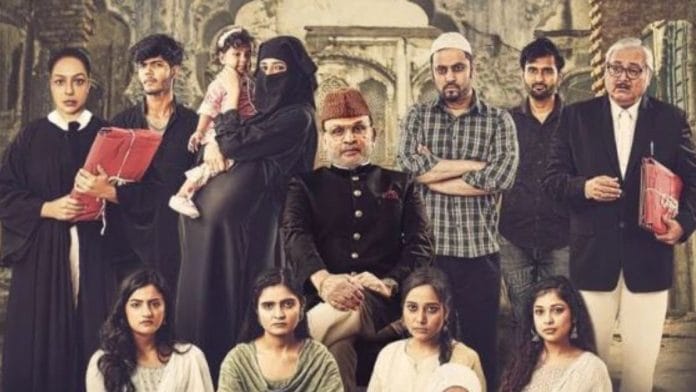Hamare Baarah is the latest entry to the list of controversial films, inciting demands for a ban.
The movie’s trailer has led to a heated debate on social media, dividing people into two coteries. The trailer boldly captures the ugly side of institutionalised oppression faced by Muslim women in society, depicting how Maulvis use their interpretation of religious verses to sanction such treatment of women. However, the counterargument is that the movie is less about artistic merit challenging the status quo and more about vile propaganda, suggesting that Muslims are responsible for population growth.
This is in line with the same old pattern where even mild criticism related to the Muslim community and religious sentiments is met with hostility and given a hate spin. There is a clear bigotry of lower expectations from the Muslim community, where addressing social ills and problematic mindsets is seen as an attack on the entire community. While other communities have also demanded bans or knocked on the judiciary’s doors, such movies have found support from free speech advocates and those who identify with liberal values.
Also Read: Hamare Baarah suggests Muslims procreate more to alter India—Courts to decide on ban or release
Politics of bans
While the Bombay High Court has ruled that Hamare Baarah contains no anti-Muslim content, it suggested a few cuts in the film. The court also asked the makers to include a 12-second disclaimer at the movie’s beginning, which informs the viewer about the Islamic practice of polygamy. Additionally, the producers and makers will have to pay Rs 5 lakh fine because some scenes in the trailer violated the Cinematograph Act 1952. However, the court also noted that the film aims to uplift women, and the Indian public is not “gullible or silly” to misunderstand the context. Regarding the ‘misinterpretation’ of the Quran in the movie, the court observed that the movie includes interpretations by a maulvi, which was challenged by other Muslim characters.
If there are still concerns that the movie propagates hate, then the question arises: How do we determine whether the film is a genuine artistic expression addressing social issues or is offensive? What is the parameter? The truth is that the concepts of “artistic merit” and “offensiveness” are nebulous and lack objectivity, evolving with societal preferences and norms.
Indian religious communities, especially Muslims, should stop calling for bans on movies due to hurt sentiments. freedom of expression cannot and should not be suppressed, as doing so prevents meaningful dialogue on challenging subjects.
While the courts were hearing the Public Interest Litigation (PIL), the Karnataka government decided to ban the movie in the state, citing potential communal tension as the reason. This is not the first time a movie has been banned by either a state or central government. In 2023, the government banned a BBC documentary on Prime Minister Narendra Modi’s alleged role in the 2002 Gujarat riots. It received international attention.
Governments wield the power to restrict speech, silence critical voices, and ban movies disliked by their voter base. We can also observe how political parties support or oppose content bans to serve their own interests. This power can easily be misused based on biases and political motivations.
Any attempt to impose bans in today’s interconnected world is futile. Moreover, the notion that bans can resolve social issues is deeply flawed. The Indian government, from time to time, prohibits the release of movies, the sale of alcohol, and even pornography as a strategic approach to addressing issues. However, these bans typically serve as patchwork, focusing on immediate fixes rather than tackling the root of the problem. While banning something could be helpful in the short term, it’s rarely sustainable.
Amana Begam Ansari is a columnist and TV news panelist. She runs a weekly YouTube show called ‘India This Week by Amana and Khalid’. She tweets @Amana_Ansari. Views are personal.
(Edited by Ratan Priya)







Well said, Amana Begum. Any call for introspection on the part of Muslims is called Islamophobia. And here, even the court says the film has no anti Muslim content. Am glad to see Amana continue the fight for Muslims to succeed on their own merit and not succeeding by claiming victimization.
To be honest, if I was the Censor Board, would disallow the title itself. Deeply offensive, hurtful. Subliminal message of Muslims producing more children, intent on reducing Hindus to a majority.
Gave me different perspective.